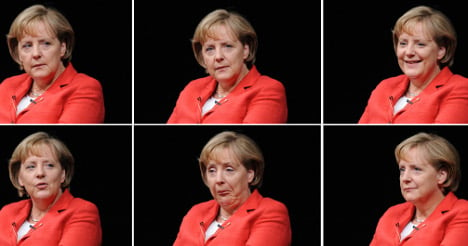What if Germany held an election and nobody won?
It’s certainly difficult to pick a winner from the rather muddled state polls held on Sunday, and even harder to divine any import from them for the country’s general election just four weeks away.
With Chancellor Angela Merkel’s Christian Democrats (CDU) suffering heavy losses in Saarland and Thuringia, the conservatives will find little solace in their solid performance in Saxony. Two CDU state premiers now face the possibility of being replaced by left-wing coalitions less than a month before Merkel was hoping to be triumphantly re-elected.
Hoping to ditch the centre-left Social Democrats (SPD) for the pro-business Free Democrats (FDP) after the general election on September 27, she now has to worry if voters have started to sour on the idea of such a centre-right alliance. Long content to appear the aloof chancellor confident of cruising to victory, Merkel is now hearing from within her own party that her campaign lacks both passion and ideas.
FDP leader Guido Westerwelle can’t be particularly happy either with the results from Sunday – even if the Free Democrats might be able to join the government in Saxony. But will they be able to come in from the cold after 11 years in the opposition at the federal level? Still eminently possible, a coalition with Merkel’s conservatives at the national level no longer looks quite so inevitable as it did only days ago.
But the beleaguered Social Democrats can hardly claim victory either. The party is so desperate for a boost to its flagging campaign for the upcoming national election that the SPD has decided to focus on the CDU’s woes rather than those of its chancellor candidate and Foreign Minister Frank-Walter Steinmeier. Yet the SPD’s results in all three states on Sunday were less than stellar – and in Saxony its performance was downright dismal.
The once proud Volkspartei eked out ten percent of the vote to stay just barely the third largest party in the Saxon state legislature. The SPD also placed far behind the hard-line socialists from The Left in Thuringia and was barely ahead of the rival leftist party in Saarland. The message from voters was clear: if the SPD wants to govern Germany’s 16 Länder, it has to do so with The Left, a collection of former communists from East Germany and disgruntled western German trade unionists. Otherwise, the Social Democrats have to be content playing the junior partner to Merkel’s conservatives for years to come.
So does that make The Left the big winner from Sunday? Hardly. The SPD has said it will not accept playing second fiddle to the socialists in Thuringia, making a grand coalition with the Christian Democrats more likely. And despite a strong performance in Saarland, The Left cannot be assured it will join a cumbersome three-way coalition with the SPD and the environmentalist Greens. Finally, The Left remains untouchable as a partner for the Social Democrats at the federal level after September 27 because of the party’s widely considered unrealistic economic and foreign policies.
For a country long known for its comfortingly staid politics, Germany has entered a phase characterised by uncertainty and turmoil – which is unsettling for both voters and politicians alike.
The political cacophony is a direct function of the changing party landscape in Germany in recent years. The era of comfy two-party ruling coalitions is over – let alone the cushy days when the conservatives or Social Democrats could govern at the state or federal levels alone.
The parties will now have to get used to multi-party governments seen elsewhere in Europe. The first left-wing “red-red-green” coalition could soon govern in Saarland, but so too could the more exotic alliance of Christian Democrats, Free Democrats and Greens known as a “Jamaica” alliance because the party colours match those of the country’s flag.
Blazing such new political territory isn’t going to be easy and in the end the only “winner” on September 27 could end up being the status quo – that is, the unsatisfying right-left grand coalition of Christian and Social Democrats. That might be enough to keep Merkel in the Chancellery, but it certainly won’t be enough for German voters in the coming years.




 Please whitelist us to continue reading.
Please whitelist us to continue reading.
Member comments